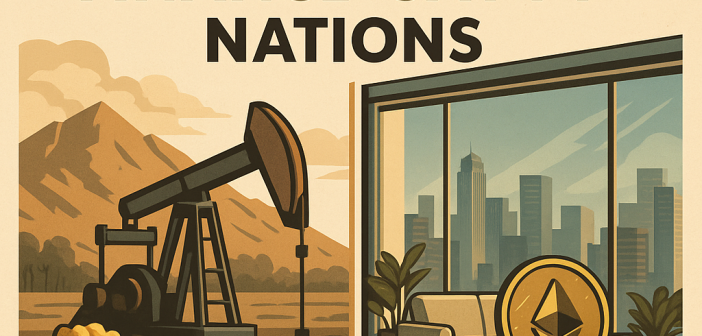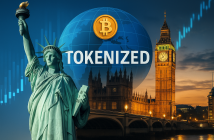In the global economic landscape, a nation’s prosperity is no longer solely determined by its natural resource endowment. Instead, effective financial management and the adoption of innovative technologies, such as Real-World Asset (RWA) tokenization, are becoming pivotal in achieving sustainable growth.
The Resource Paradox
Countries like the Democratic Republic of the Congo (DRC) and Venezuela are emblematic of the “resource curse.” Despite abundant reserves of minerals and oil, these nations grapple with economic instability, corruption, and underdevelopment. The DRC, rich in cobalt and copper, remains one of the world’s poorest countries, hindered by political turmoil and inadequate infrastructure. Similarly, Venezuela’s heavy reliance on oil exports has led to economic volatility, exacerbated by mismanagement and external sanctions.
Gabon, with its significant oil revenues, faces challenges in diversifying its economy. The nation’s overdependence on oil has made it vulnerable to global price fluctuations, leading to fiscal deficits and social disparities. These examples underscore that natural wealth, without prudent financial governance, does not guarantee economic prosperity.
Switzerland: A Model of Financial Excellence
Contrastingly, Switzerland exemplifies how strategic financial management can lead to sustained economic success. With limited natural resources, Switzerland has cultivated a robust financial sector, characterized by stability, innovation, and transparency. The country’s emphasis on regulatory frameworks and investment in financial technologies has solidified its position as a global financial hub.
Switzerland’s proactive approach in adopting digital financial solutions, including RWA tokenization, demonstrates its commitment to staying at the forefront of financial innovation. By embracing these technologies, Switzerland enhances asset liquidity and broadens investment opportunities, reinforcing its economic resilience.
The Promise of RWA Tokenization
RWA tokenization involves converting tangible assets, such as real estate or commodities, into digital tokens on a blockchain. This process enhances asset liquidity, facilitates fractional ownership, and democratizes investment access.
Emerging economies have the potential to leverage RWA tokenization to unlock the value of their natural resources. By implementing transparent and secure tokenization platforms, these countries can attract foreign investment, reduce corruption, and promote inclusive economic growth.
However, successful adoption requires robust legal frameworks, technological infrastructure, and a commitment to transparency. Without these, the benefits of RWA tokenization may remain out of reach.
Conclusion
The dichotomy between resource-rich nations struggling economically and resource-poor countries thriving financially highlights the critical role of governance and innovation. Embracing financial technologies like RWA tokenization offers a pathway for nations to transcend traditional economic limitations, fostering sustainable and inclusive growth.




